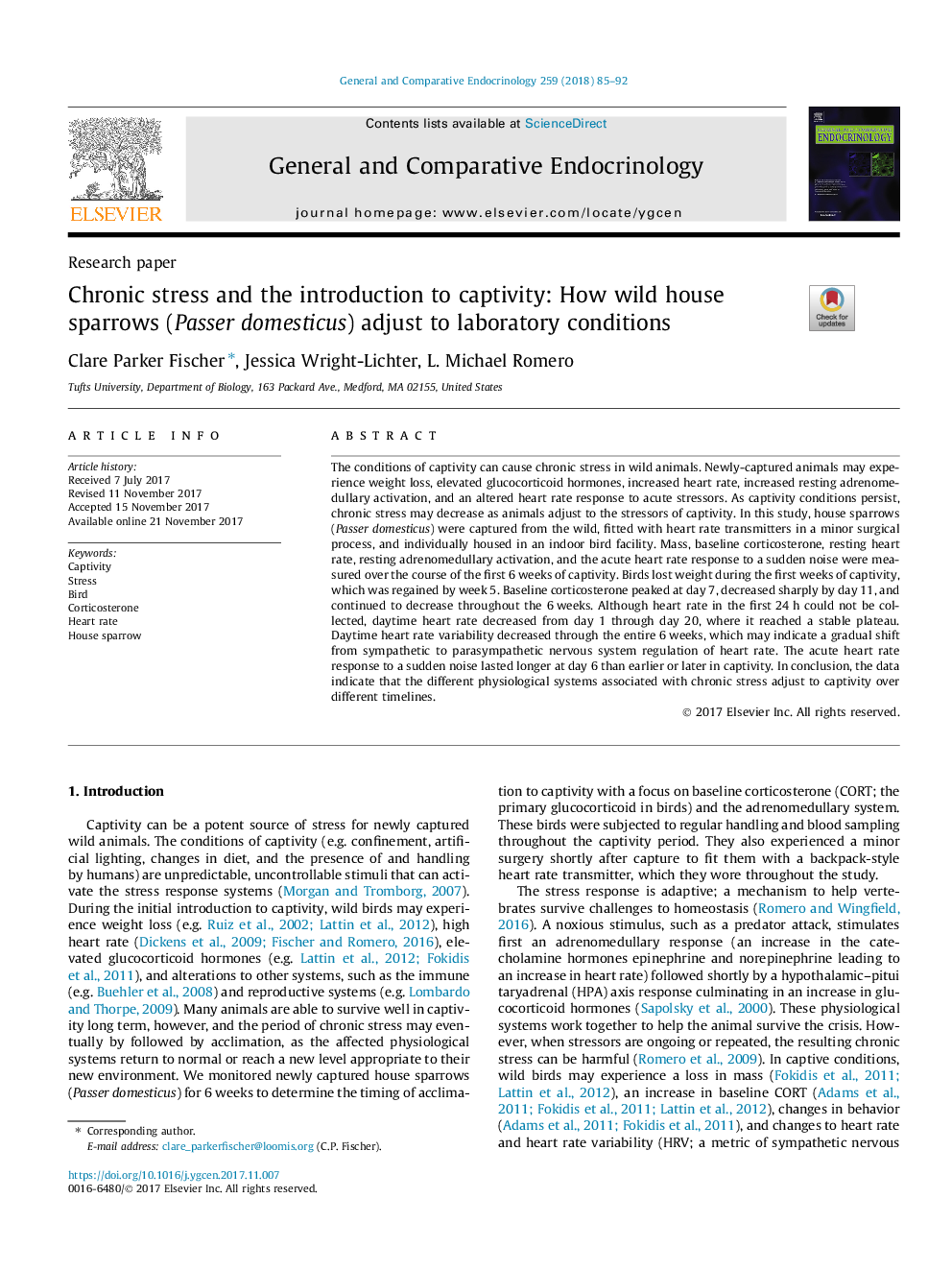| Article ID | Journal | Published Year | Pages | File Type |
|---|---|---|---|---|
| 8631143 | General and Comparative Endocrinology | 2018 | 8 Pages |
Abstract
The conditions of captivity can cause chronic stress in wild animals. Newly-captured animals may experience weight loss, elevated glucocorticoid hormones, increased heart rate, increased resting adrenomedullary activation, and an altered heart rate response to acute stressors. As captivity conditions persist, chronic stress may decrease as animals adjust to the stressors of captivity. In this study, house sparrows (Passer domesticus) were captured from the wild, fitted with heart rate transmitters in a minor surgical process, and individually housed in an indoor bird facility. Mass, baseline corticosterone, resting heart rate, resting adrenomedullary activation, and the acute heart rate response to a sudden noise were measured over the course of the first 6â¯weeks of captivity. Birds lost weight during the first weeks of captivity, which was regained by week 5. Baseline corticosterone peaked at day 7, decreased sharply by day 11, and continued to decrease throughout the 6â¯weeks. Although heart rate in the first 24â¯h could not be collected, daytime heart rate decreased from day 1 through day 20, where it reached a stable plateau. Daytime heart rate variability decreased through the entire 6â¯weeks, which may indicate a gradual shift from sympathetic to parasympathetic nervous system regulation of heart rate. The acute heart rate response to a sudden noise lasted longer at day 6 than earlier or later in captivity. In conclusion, the data indicate that the different physiological systems associated with chronic stress adjust to captivity over different timelines.
Related Topics
Life Sciences
Biochemistry, Genetics and Molecular Biology
Endocrinology
Authors
Clare Parker Fischer, Jessica Wright-Lichter, L. Michael Romero,
